
Have you ever wondered if the water in your home is causing damage to your appliances or leaving your skin feeling dry? Hard water, which contains high levels of minerals like calcium and magnesium, is a common issue that affects many households. Over time, hard water can lead to clogged pipes, reduced appliance efficiency, and even higher energy bills. The good news is that testing your water hardness is simple and can help you determine the best solution to protect your home and improve water quality. In this article, we’ll explore three reliable ways to test water hardness and explain why understanding your water’s hardness level is so important.
Why You Should Test for Hard Water
Hard water is a common problem in many regions, especially Phoenix, and its effects are more than just cosmetic. Over time, the minerals in hard water can build up in your plumbing, creating scale deposits that reduce water flow and damage appliances. Additionally, hard water can interfere with soap lathering, leaving dishes, clothes, and even your skin feeling less clean.
Knowing how to test water hardness helps you understand whether you need a water softener and ensures your household water is safe and efficient for daily use. By testing your water, you can prevent costly repairs, improve the lifespan of your appliances, and enjoy cleaner, softer water.
How Is Water Hardness Measured?
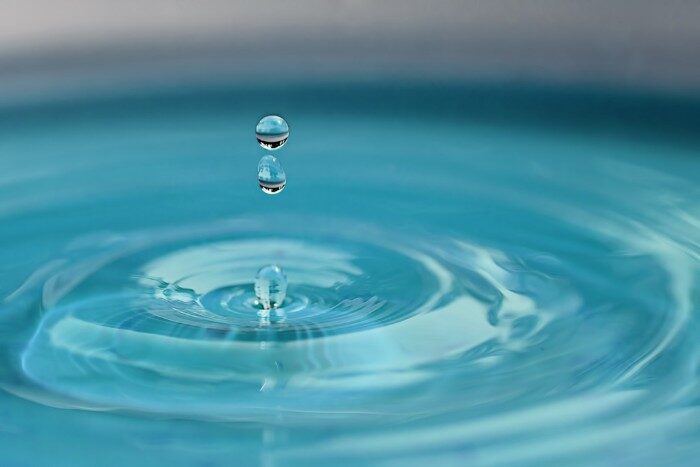
Water hardness is typically measured based on the concentration of calcium carbonate, expressed in either grains per gallon (GPG) or parts per million (PPM). The levels are categorized as follows:
- Soft Water: 0–60 PPM (0–3.5 GPG)
- Moderately Hard Water: 61–120 PPM (3.5–7 GPG)
- Hard Water: 121–180 PPM (7–10.5 GPG)
- Very Hard Water: Over 180 PPM (10.5+ GPG)
Understanding these measurements allows you to interpret the results of a hard water test and determine the severity of your water hardness. Next, let’s dive into the three most common ways to test your water hardness.
1. DIY Soap Test
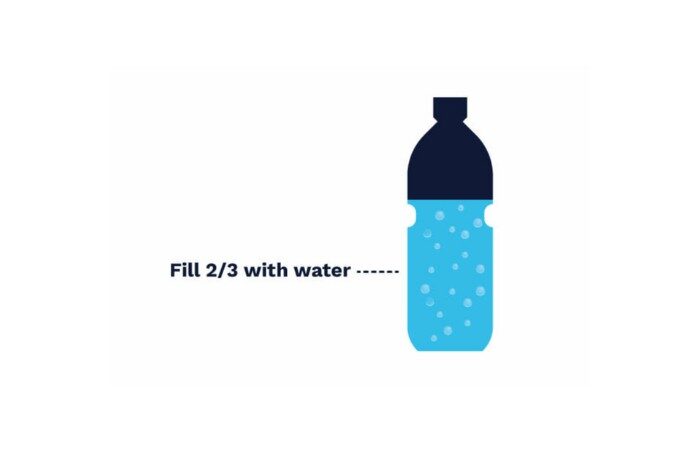
The DIY soap test is one of the easiest and most cost-effective ways to determine if you have hard water. While it won’t give you precise measurements, it provides a general indication of water hardness.
How to Perform the Soap Test:
- Fill a clear, empty bottle with about 12 ounces of tap water.
- Add 10 drops of pure liquid soap (not detergent or hand soap with additives) to the bottle.
- Shake the bottle vigorously for 10–15 seconds.
- Observe the results:
- Soft Water: The water will produce a lot of suds, and the water underneath will appear clear.
- Hard Water: The water will have little to no suds, and the liquid will look cloudy or milky.
Pros:
- Quick and easy
- Requires no special equipment
- Completely free if you already have soap at home
Cons:
- Provides only a general idea of water hardness
- Not suitable for determining exact hardness levels
The soap test is a great starting point for identifying whether you might have hard water. If your results suggest hard water, you may want to use a more precise method, such as a test kit.
2. Water Hardness Test Kits
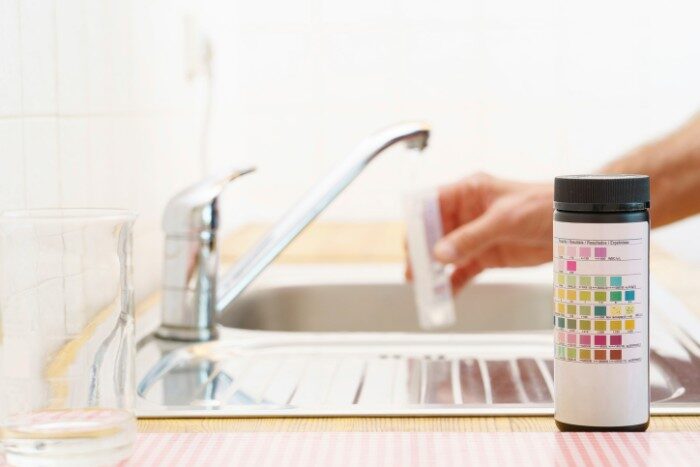
Water hardness test kits are widely available and provide an accurate way to measure the hardness of your water. These kits typically include test strips or drops that react to the minerals in your water, giving you a clear measurement in PPM or GPG.
How to Use a Test Kit:
- Collect a sample of tap water in a clean container.
- Follow the instructions on the test kit, which usually involve dipping a test strip into the water or adding drops of a testing solution.
- Compare the results to the chart provided with the kit to determine your water’s hardness level.
Pros:
- Provides accurate measurements
- Easy to use and widely available
- Affordable, with most kits costing $10–$20
Cons:
- Single-use kits may need to be repurchased for repeated testing
- Results can vary slightly depending on the kit’s quality
Using a test kit is ideal if you want a precise measurement of your water hardness. It’s also a helpful tool for monitoring your water’s hardness over time, especially if you’ve recently installed a water softener.
3. Professional Water Testing
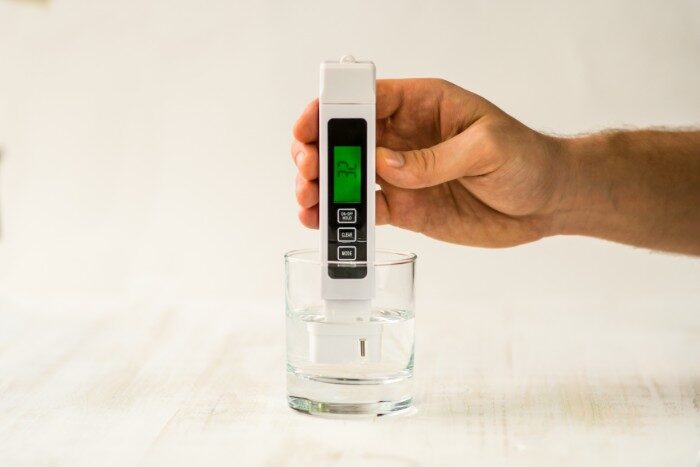
For the most accurate and comprehensive results, consider hiring a professional water testing service. Professionals use advanced tools to measure not only water hardness but also other water quality factors, such as pH levels, iron content, and potential contaminants.
How Professional Testing Works:
- Schedule a visit from a water testing expert.
- The technician will collect and analyze water samples from your home and using specialized equipment.
- Receive a detailed report outlining your water’s hardness level and any additional findings.
Pros:
- Highly accurate results
- Includes a detailed analysis of water quality
- Can identify additional water issues beyond hardness
Cons:
- More expensive than DIY methods
- Requires scheduling and waiting for results
Professional testing is an excellent option if you’re considering installing a water treatment system or need detailed insights into your water quality.
What to Do If You Have Hard Water

If your testing results indicate hard water, the best solution is to install a water softener. Water softeners remove the calcium and magnesium ions responsible for water hardness, replacing them with sodium or potassium ions. This process not only prevents scale buildup but also improves water flow, extends the life of your appliances, and enhances the feel of your skin and hair.
Signs You Might Need a Water Softener
- Soap doesn’t lather well
- White spots on dishes and glassware
- Dry, itchy skin or dull hair
- Mineral buildup on faucets and showerheads
- Reduced water pressure due to clogged pipes
Tips for Maintaining Your Water Softener
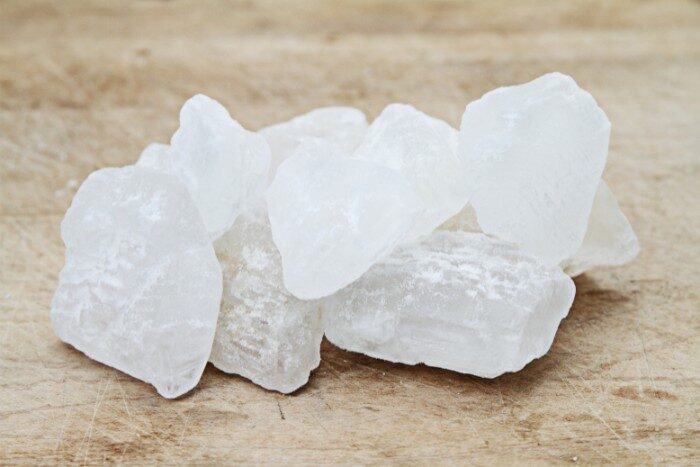
If you already have a water softener or plan to install one, proper maintenance is essential for optimal performance. Here are some quick tips:
- Use High-Quality Salt: Stick to salt designed for water softeners to avoid clogs and impurities.
- Check Salt Levels Regularly: Refill the brine tank as needed to ensure consistent softening.
- Clean the Brine Tank: Periodically clean the tank to remove sediment and prevent salt bridging.
- Schedule Annual Inspections: Have your system inspected by a professional to catch potential issues early.
Take Control of Your Water Quality

Understanding your water hardness is the first step toward improving your water quality and protecting your home from the effects of hard water. Whether you try the DIY soap test, use a reliable test kit, or opt for professional testing, knowing your water’s hardness level allows you to make informed decisions about water treatment.
If you discover hard water in your home, don’t wait to take action. Installing a water softener can make a significant difference in your daily life, from cleaner dishes to healthier skin and longer-lasting appliances.

Ready to improve your water quality? Contact Clear Water Concepts today for expert advice and solutions tailored to your needs. Our team can help you test your water hardness and find the perfect water-softening system for your home.


